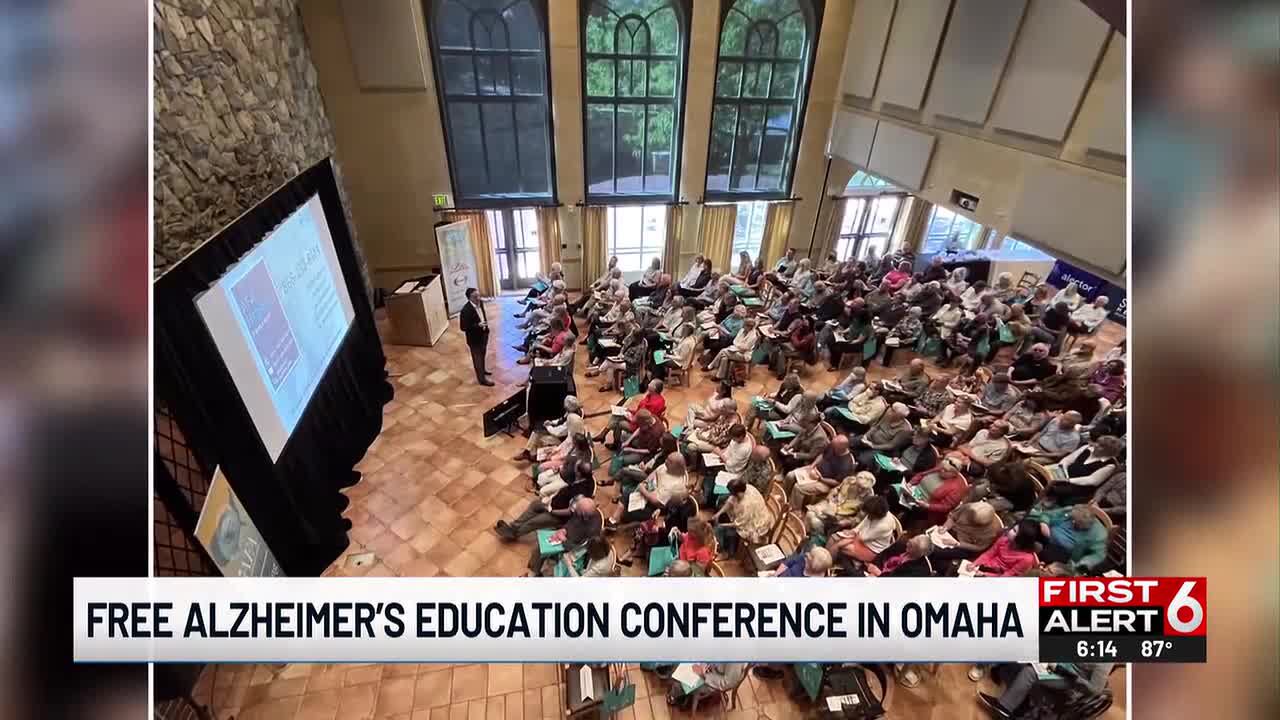Alzheimer's Conference in Omaha: Free Memory Screenings Available

Understanding Brain Health and Dementia Care
An upcoming event in Omaha is offering residents an opportunity to learn more about brain health and the support available for those living with dementia. The Alzheimer’s Foundation of America (AFA) is hosting its Educating America Tour in the city on Wednesday, September 17, from 10:00 am to 1:00 pm at Bellevue University’s Hitchcock Humanities Building. This free event is open to anyone interested in gaining insights into dementia care and early detection.
Dr. Anna Fisher, a nurse, dementia expert, and professor at Bellevue University’s Master of Healthcare Administration program, will be one of the speakers at the conference. She emphasizes the importance of early diagnosis in maintaining a higher quality of life for individuals affected by dementia. “We’re encouraging the public to come down. Early diagnosis is key to having a higher quality of life,” she said.
The conference will also highlight new tools for early diagnosis and provide resources for caregivers seeking support. Dr. Fisher has firsthand experience in dementia care, as her mother-in-law, Rosemary Knott, passed away from Alzheimer’s Disease. “Living it not only as a caregiver and having loved ones impacted, this is complex, but it’s all opportunity and there’s hope. The more you can empower yourself with knowledge, the greater you are then to navigate through this journey,” she explained.
The Impact of Dementia in Nebraska
In Nebraska, over 35,000 people are currently living with Alzheimer’s Disease. The Centers for Disease Control and Prevention (CDC) predicts that cases could double by 2060 if a cure is not found. Dr. Fisher stresses that early detection remains the best way to achieve positive outcomes for those affected.
Theresa Parker, a Lincoln resident, shares her personal experience with dementia care. She noticed her husband, Mark, experiencing confusion during football season 11 years ago. After an assessment, he was diagnosed with dementia, which allowed him to start medication for his memory. “I kept saying to him, we’re going to continue to live our lives. We have a diagnosis, no big deal, we’re still going to go travel, we’re still going to go out with friends, we’re still going to keep our normal activities,” she said.
Both of Theresa’s parents also have dementia, and she serves as a caregiver for all three. She believes education is crucial for managing dementia care. “There’s always advances, there’s new approaches to interacting with individuals who are living a diagnosis of dementia. This education component is so important,” she explained.
Importance of Early Detection and Support
Pre-registration for the conference is encouraged but not required. During the event, attendees can participate in free memory screenings. Chris Schneider from the Alzheimer’s Foundation of America explained that these screenings involve confidential questions to assess memory and cognitive functions. If the results fall below the baseline, individuals are advised to consult a physician for further evaluation. While the screening does not provide a diagnosis, it serves as an important early detection tool.
Schneider also highlighted that dementia is not the only cause of memory issues. Other conditions such as vitamin deficiencies, thyroid disorders, sleep apnea, depression, and urinary tract infections can also affect memory. “Those are all treatable if not curable, but if you don’t get checked out, you’re not going to know,” he said.
For those unable to attend the conference, the AFA offers online memory screenings through secure video technology every weekday. Additionally, the organization provides a helpline available seven days a week for calls, texts, or webchat. Social workers trained in dementia care can assist with questions and connect individuals with local resources.
Tips for Caregivers and Family Members
Caregivers like Theresa Parker emphasize the importance of open communication and ongoing learning. “Not hiding it, talking about it. You’re going to have good days; you’re going to have bad days. Just keep learning. Every day I learn something new,” she shared.
By attending events like the Educating America Tour, individuals can gain valuable knowledge, connect with others, and take proactive steps toward better brain health and dementia care. Whether through in-person events or online resources, the goal remains the same: to support those affected and improve their quality of life.
Post a Comment